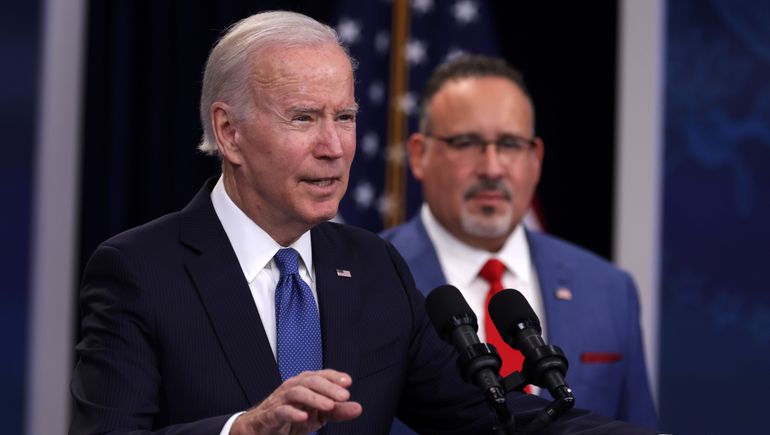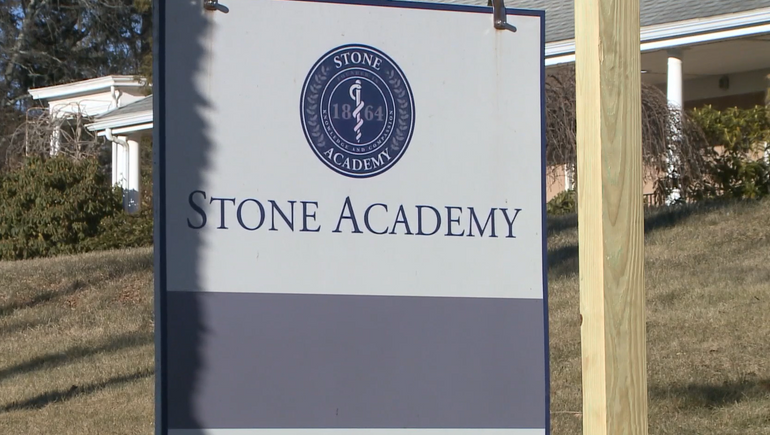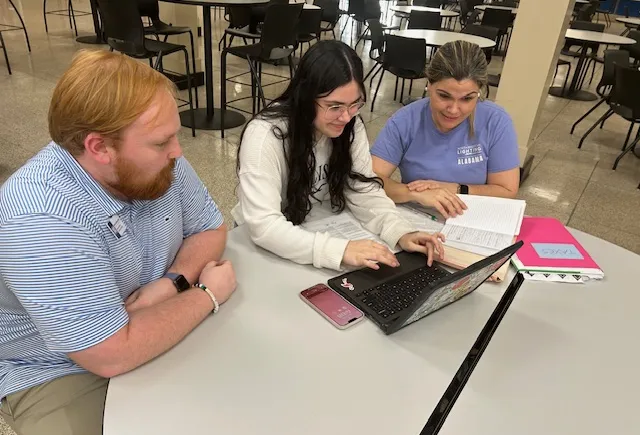[ad_1]
Miguel Cardona is the 12th U.S. secretary of education, currently serving under President Joe Biden.
When I served as a teacher, school principal and district leader, I relied on every single dollar from local, state and federal governments to provide resources to the students in my care.
Whether it was additional support for teaching children how to read, or for ensuring parents and families had access to wraparound services, or for making sure educators had the professional development required to meet students’ changing needs, I knew it was my responsibility to use all available resources to ensure young people were ready for the opportunities that came upon high school graduation.
Countless educators I’ve spoken with as U.S. education secretary tell me they feel the same responsibility. And every parent and family I’ve met has shared they’re counting on their public schools to deliver essential supports to their children — especially in the recovery from the pandemic.
President Biden recently released a budget that includes the funding necessary for teachers to provide their students with great learning experiences and for parents to feel confident that their kids can thrive in school.
But at a moment when robustly supporting our children has never mattered more for the strength of our communities, our economy and our country, I’ve seen frightening counterproposals to the president’s plan.
One plan — passed by congressional Republicans — would slash education funding by 22%.
I want to be very clear about what proposals like this would do.
About 26 million students from low-income communities would see their schools’ federal funding drop to the lowest level in a decade. These are some of the schools hardest hit by the pandemic, and they’ll receive another gut punch if congressional Republicans get their way.
In Arizona alone, about $80 million in funding would be eliminated for schools serving children living in poverty. That’s money that would have been used for so many important purposes, like expanding access to preschool, using proven strategies to help students make academic progress and regain lost ground from the pandemic, and help strengthen ties among schools, families and parents.
America already faced a shortage of around 100,000 certified teachers before the pandemic. A 22% budget cut would just bring on more damage, pulling the equivalent of another 100,000-plus educators out of our country’s schools. That’s enough to fill nearly two football stadiums.
If you’re a parent living in California, for example, these cuts could mean more than 7,100 educators and instructional specialists removed from your schools. If you’re a parent of a child with disabilities in New York, these cuts could mean 3,000 teachers and providers of critical special education services let go from your schools. If you’re a teacher anywhere, that could mean seeing your class sizes increase.
I’m also appalled by the potential of these cuts to derail our urgent response to the youth mental health crisis. Recent Centers for Disease Control and Prevention data show 1 in 3 high school girls has considered suicide in the last three years.
We know our young people are six times more likely to get help when it’s offered in a school setting, and that students thrive on a sense of connectedness with school. Somewhere in America, there’s a young girl whose life could change if she could speak to a school-based mental health professional. If she lives in Alabama, however, the House Republican proposal would erase nearly $4 million to deliver that help.
In addition to hurting children, educators and families, this plan would make college less affordable and make borrowers worse off. The maximum value of the Pell Grant would be slashed by $1,000 — funding that students from low-income backgrounds and many first-time college-goers need to access a postsecondary education.
The plan would cancel the president’s student debt relief program, which would keep much-needed emergency relief of up to $20,000 out of the hands of 40 million Americans. It would also block the availability of new, more affordable student loan repayment plans such as the president’s proposal to cut undergraduate loan payments in half.
The plan that congressional Republicans are advancing is staggeringly reckless.
The president often says, “Show me your budget, and I’ll show you your values.” If you view the president’s plan, you’ll see an administration that values education and opportunity for all.
You’ll see it in his budget to ensure all students have equitable access to safe and welcoming schools that nurture their overall well-being, drive their academic performance, inspire their love of learning and prepare them to succeed in whatever path they choose.
You’ll see it in significant new investments for high-quality preschool that can provide our youngest learners with a sturdy bridge to kindergarten and elementary school success.
You’ll see it in the historic funding to recruit, prepare, develop and empower effective and diverse educators who tailor instruction to meet each child’s unique needs, and who reflect the rich backgrounds of the students they serve.
And you’ll see it in the billions of dollars to boost our young people’s competitiveness in the global economy by expanding opportunities for multilingual learning, redesigning high schools to include multiple pathways to college and careers, and supercharging state and local efforts to make free community college a reality nationwide.
President Biden’s plan invests over $50 billion to close opportunity and achievement gaps in our nation’s elementary and secondary schools, sustain programming that supports students’ academic recovery from the pandemic, grow a pipeline of talented educators — including for special education, address youth mental health, and promote college opportunity and American prosperity.
Over the next few weeks, I’m going to speak on Capitol Hill to members of Congress — primarily as an educator and father — to share what educators and families across the country are telling me loud and clear: Our students need more funding, not less.
Nothing unites us more than the hopes we share for the next generation. We know what to do. Let’s reject the false choice between reducing our students’ dreams and raising the bar for everything we know they can achieve. Let’s give our students the support they deserve.
[ad_2]
Source link









